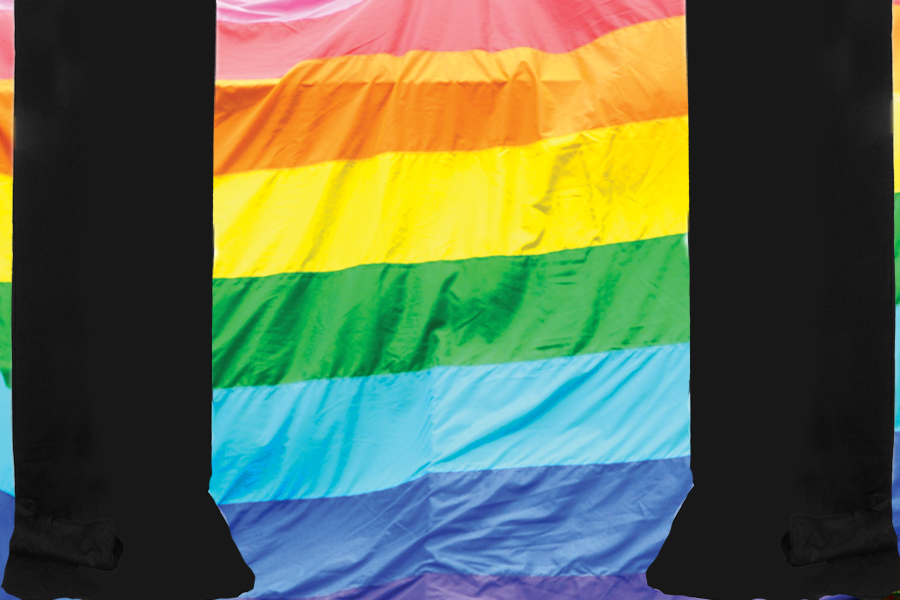Donald Trump’s unexpected victory over Hillary Clinton has left many in the LGBT community wondering what the next presidential administration will mean for LGBT rights.
“Over time, Trump has given mixed messages on LGBTQ people,” said Rea Carey, the executive director of the National LGBTQ Task Force. “On the one hand, he says, ‘I love the gays’ or ‘I don’t have a problem with gays.’ On the other hand, he chose as his running mate and presumptive vice president one of the most anti-LGBT governors in the history of this country [Indiana Gov. Mike Pence]. That’s the signal to our community.”
Here are the areas of most concern under a Trump presidency.
Marriage equality
While Trump has vowed to elect Supreme Court justices who oppose marriage equality, the president-elect made a statement on the issue in a “60 Minutes” interview, which aired last Sunday.
“It’s irrelevant because it was already settled. It’s law,” Trump said in the interview. “It was settled in the Supreme Court. I mean, it’s done. These cases have gone to the Supreme Court. They’ve been settled and I’m fine with that.”
Ted Martin, the executive director for Equality Pennsylvania, said the likelihood of the Supreme Court reversing marriage equality is “not impossible [but] is pretty improbable.” However, he voiced concerns about how spouses are considered for the purposes of health care and childcare.
“What I do think is very probable is that the new administration in Washington will do its best through rules and regulations to make the lives of LGBT people very difficult,” Martin said.
Carey also made the point that even if marriage equality were to be overturned, couples who were already married prior to the ruling would still be recognized under the law.
“There is no possible avenue for people who are married now to have those marriages be invalidated,” Carey said. “If a marriage in this country is legal when it is entered into, it’ll stay legal. You cannot be unmarried. We really want people and families in particular to know that their marriages cannot be taken away.”
Executive orders
While the Supreme Court cannot necessarily take away marriage from same-sex couples, the executive orders put in place under President Barack Obama’s administration are still at risk.
“Donald Trump’s Contract with the American Voter” outlined “five actions to restore security and the constitutional rule of law.” The first item on the list called to “cancel every unconstitutional executive action, memorandum and order issued by President Obama.” What Trump considers to be “unconstitutional” remains to be seen.
“I think we can take it on fact that executive orders pertaining to LGBT equality will be reviewed pretty quickly and probably dealt with in a fairly negative way,” Martin said.
LGBT-related executive orders include protections for LGBT people from discrimination in health care and insurance under the Affordable Care Act; LGBT inclusion in federal contracting nondiscrimination policies; the establishment of the Global Equality Fund; and the Equal Access to Housing in HUD Programs Regardless of Sexual Orientation or Gender Identity Rule. Additionally, the re-interpretation of Title IX in May 2016, which included transgender students along with discrimination based on sex, is also an order that can be reversed.
HIV/AIDS
When it comes to HIV/AIDS relief, Jane Shull, Philadelphia FIGHT’s executive director, said, “I don’t think we know yet” about what the president-elect could do for the cause.
In October 2015, C-SPAN recorded a press briefing where a college student asked if Trump would support former President George W. Bush’s 2003 initiative, President’s Emergency Fund for AIDS Relief and “double the number of people on treatment to 30-million people by the year 2020.”
“Well, I like committing to all of those things,” Trump said at the briefing. “Those are great things. Alzheimer’s, AIDS — we are close on some of them. On some of them, honestly, with all of the work that has been done — which hasn’t been enough — we are not very close. But the answer is yes. I believe so strongly in that. And we are going to lead the way.”
Meanwhile, Pence has stated that funding for HIV/AIDS “should be directed toward those institutions which provide assistance to those seeking to change their sexual behavior” in his 2000 campaign for Congress. Despite the unclear implications of Pence’s views, Shull remains optimistic.
“I think it’s important for people to remember we’ve done this before and if we have to, we will do it again,” Shull said, referring to the fight for AIDS recognition in the 1980s.
What’s next?
In a statement from the William Way LGBT Community Center, executive director Chris Bartlett outlined steps the LGBT community should take from this point. This included signing up for coverage at Healthcare.gov prior to Dec. 31 and updating your legal name and gender on federal documents prior to Trump’s inauguration on Jan. 20.
Additionally, Bartlett addressed Philadelphia’s nondiscrimination laws.
“Please note that Philadelphia has LGBT-inclusive nondiscrimination laws in place to protect our rights,” Bartlett said in the statement. “These laws supersede federal law and cannot be changed by the new administration.”
Relying on allies in elected office will also be key, Shull said.
“We should remember we have many friends.”
